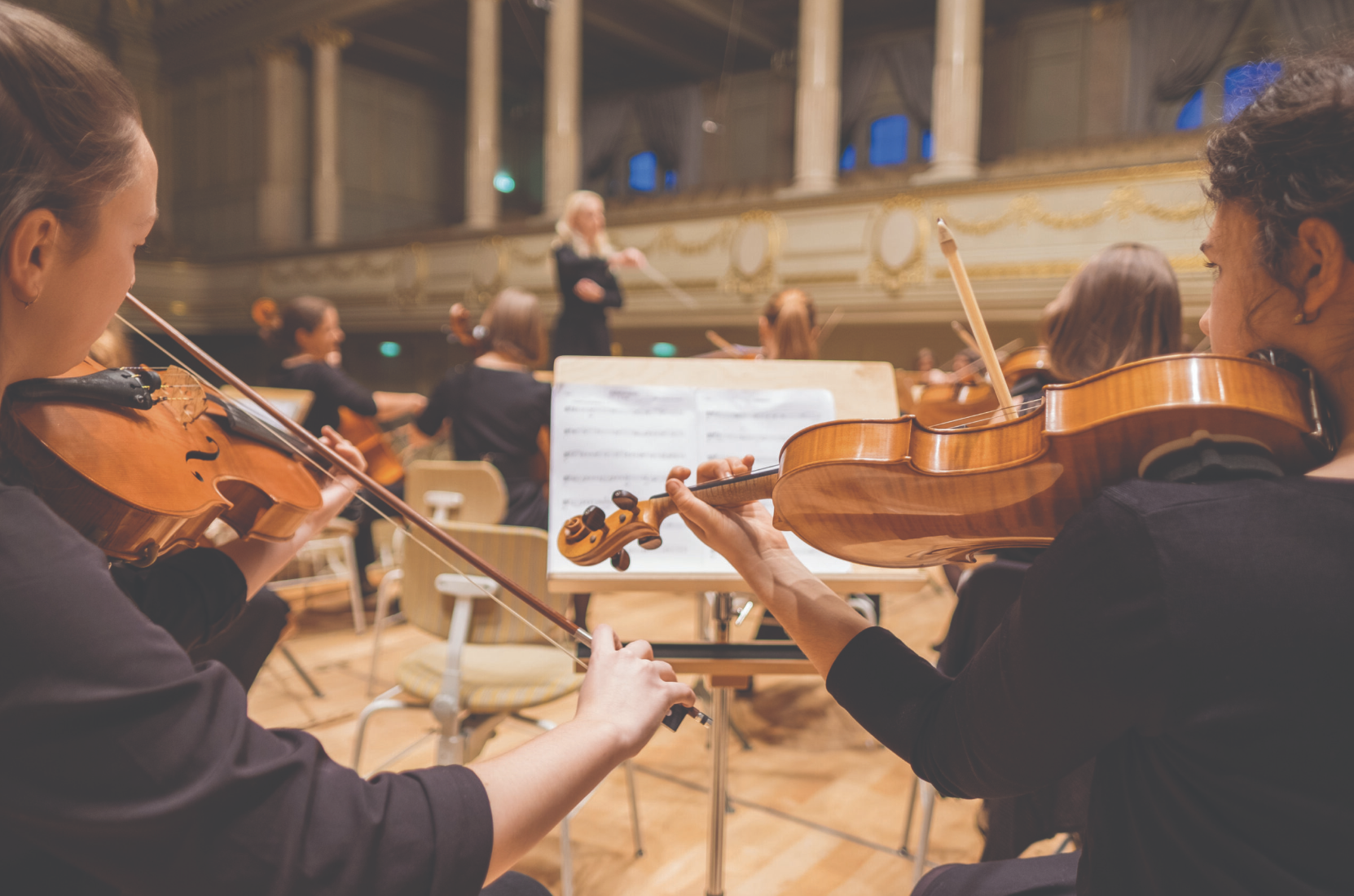By: JILLIAN DARA

How an orchestra of sound is changing your bubbly.
We are stating the obvious. New Year’s Eve and champagne go hand in hand. When deciding on the best bottle of bubbles this year, however, there’s something you should consider. It’s scientifically proven that a song’s melody can alter the way we taste wine. Now would be the time to revamp your party playlist. In 2013, Oxford University Crossmodal Research Laboratory studied the correspondence between classical music and fine wine. They found that “participants perceived the wine as tasting sweeter and enjoyed the experience more while listening to the matching music than while tasting the wine in silence.” The pairings included Tchaikovsky’s String Quartet No 1 in D major with Château Margaux 2004 and Mozart’s Flute Quartet in D major, K285 with Pouilly Fumé.
Since then, wine experts, brands, and even Champagne houses have executed their research. Krug Champagne, for example, has been experimenting and exploring this unique relationship, which is deeply ingrained in their philosophy. “The connection between Krug and music has been strong since the beginning,” shares Krug’s president Manuel Reman, who points to Krug’s Salon de Musique, of which they were the first Champagne house to feature.
Reman says since the 2013 study, Krug has partnered with IRCAM, the French Institute for Acoustic and Musical Research, to create new musical experiences, including the launch of Krug Music Pairings, where the House invites selected musicians to an extended tasting of their Champagnes to inspire them to compose individual scores, deemed Krug Echoes, which translate the sensations of the tasting into a melody.
“Like wine, music is art. It triggers or accentuates emotions, yet it is also structured and scientific,” agrees Patrice Breton, proprietor of Vice Versa Wine out of Napa Valley, who also has a history with music, naming some of his wines after musical pieces, such as “The Magnificent Seven” (The Clash), and Beckstoffer Las Piedras “Sleepyhead” (Passion Pit).
When it comes to pairing wine and music, Breton shares that most wines are better suited to consonant music. “The objective is to elevate the experience. A wine showing great intensity, freshness, vibrancy, and passion, such as a fine white burgundy from Leflaive or Lafon, pairs well with Kaskade, where the music is textural, deeply moving, and builds in crescendos, yet doesn’t distract from the tasting experience.”
This pairing exemplifies a melody with lower decibels and beats per minute, which researchers at the University of Manchester discovered when played while drinking wine, subjects identified more flavor profiles, explains Nick Herbst, director of food and beverage outlets at Isla Bella Beach Resort in the Florida Keys. On the contrary, the study found subjects rated the food as duller tasting in loud and unpleasant environments.
Herbst emphasizes that as subjective as both music and wine preferences can be, regardless, the piece should always complement the environment. “For the most part, music and sounds that make us feel calm and comfortable will allow the taster to open their personal tasting abilities fully, thus having a better overall wine-tasting experience,” he shares. And while that doesn’t necessarily have to be classical music–alternative rock, Indie, and reggae are Herbst’s preferred beats–the slower the rhythm, the more soothing the soundtrack.
Breton even suggests hip hop for a Blanc de Blanc Champagne, citing the harmonious brightness, freshness, intensity, lift, and festive association, all of which also heralds a prosperous New Year celebration, in our opinion.
